It is the Muslim holy month of Ramadan. Millions of Muslims are fasting, and thousands of worshippers in Palestine are denied the right to worship in Jerusalem. Israeli settlers and police regularly invade the Al Aqsa mosque in Jerusalem, the third holiest site in the world for Muslims, and harass the worshippers.
At Ifthar, the end of each daily fast during Ramadan, it is traditional for Muslims to break the fast with dates. This means that Ramadan is one of the two busiest times of the year, along with Christmas, for date exporters.
In the occupied West Bank, the Jordan Valley provides an ideal environment for date growing, and Israeli colonists have taken advantage of this environment, and the cheap Palestinian workforce provided by the occupation’s stranglehold on the Palestinian economy. This, together with stolen Palestinian land and water, allows the settlers to grow dates on an industrial scale.
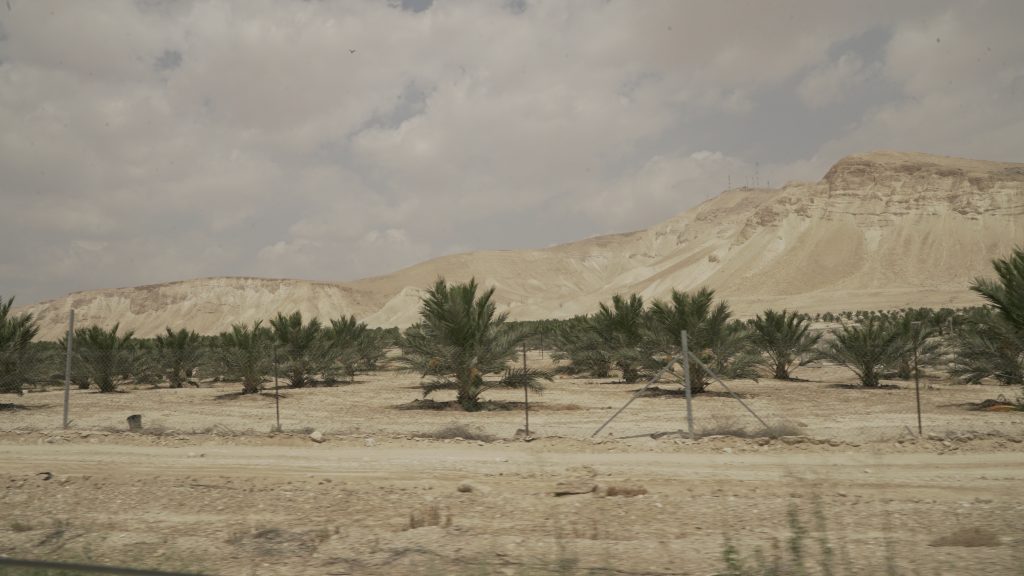
Young date trees in between the settlement of Massua and the Palestinian village of Fasayil. The land they are growing has recently been confiscated from Palestinian people: Photo by Corporate Occupation
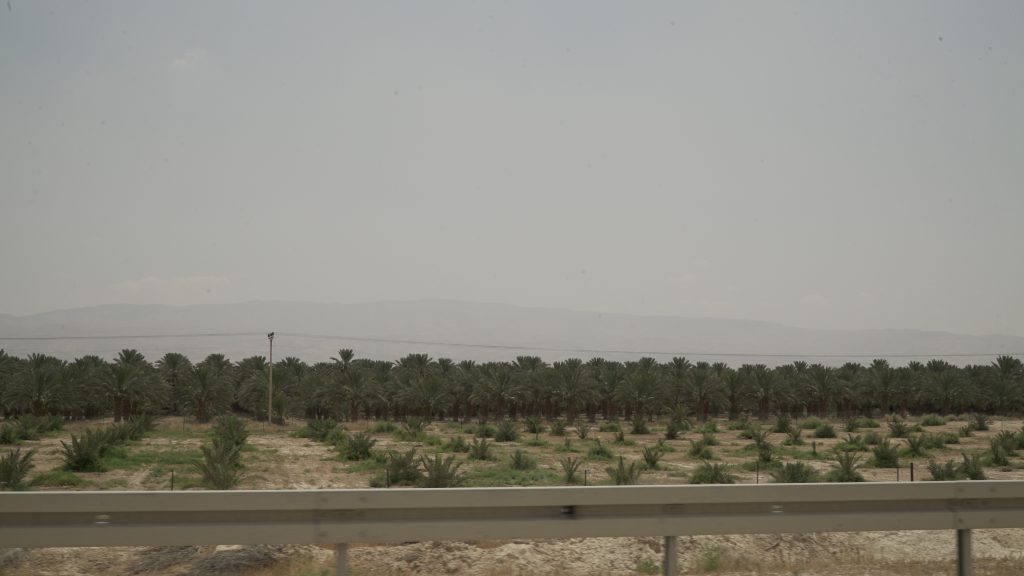
A shot from the road of the huge date plantations south of Massua settlement, Jordan Valley: Photo by Corporate Occupation
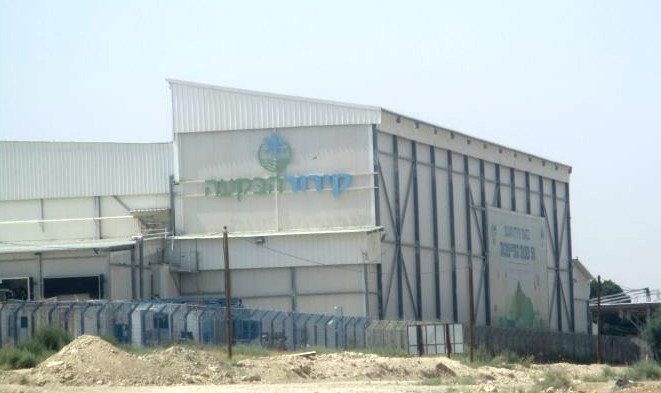
A date refrigeration plant at the settlement Regional Council of the Jordan Valley: photo by Corporate Occupation
Undercover Corporate Occupation researchers visited several of the Jordan Valley settlements during May and June 2018. Many of the dates we saw packaged in the settlements of Tomer and Gilgal were not packaged for the big supermarkets, but instead were packaged for export to small shops inside and outside Palestine. These small shops, often Muslim owned, sell boxes of dates for people to break their Ramadan fast.
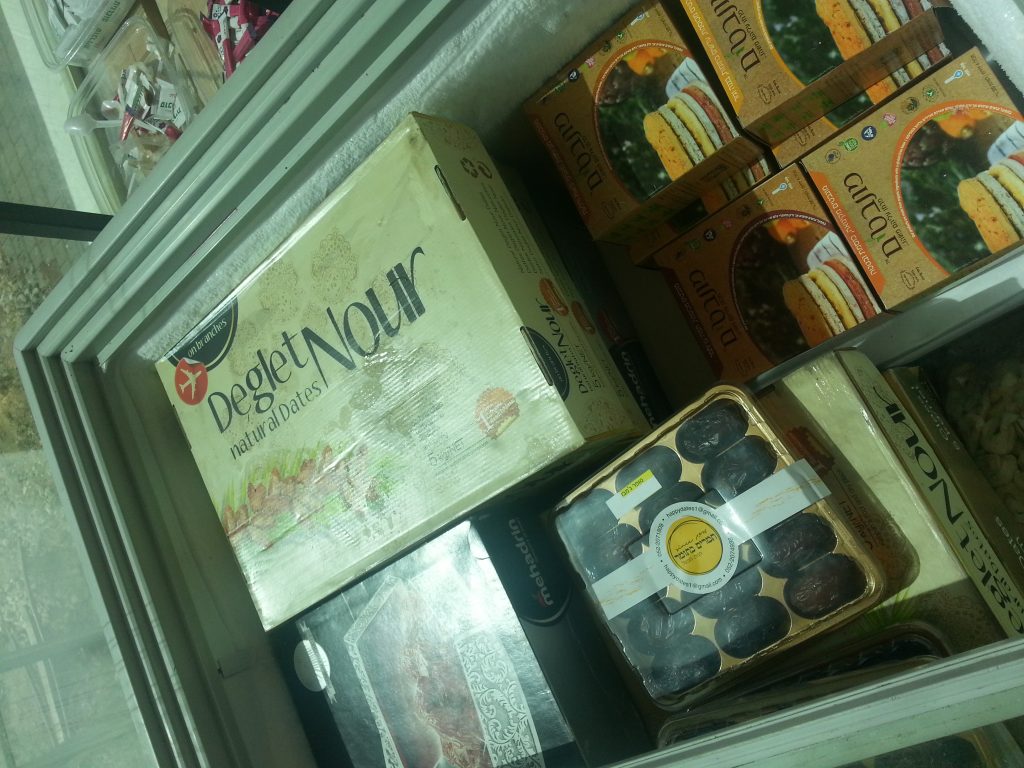
Settlement dates on sale in the settlement of Tomer, Jordan Valley: photo by Corporate Occupation
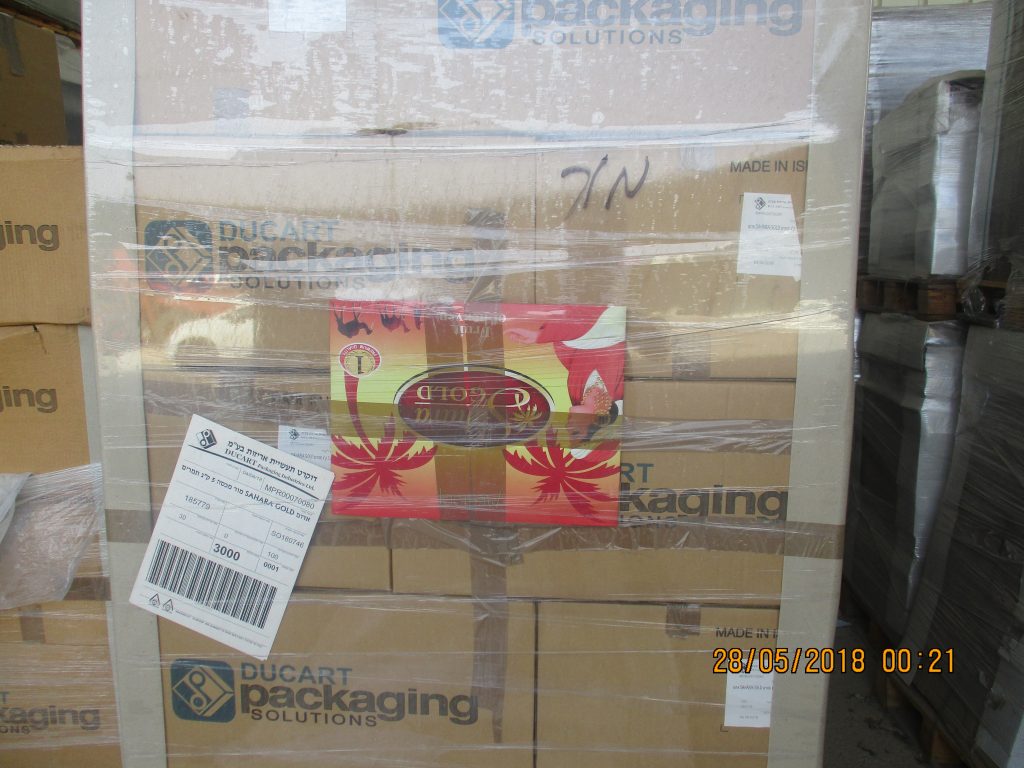
Date packaging in a packing house in the settlement of Na’ama, Jordan Valley: photo by Corporate Occupation
Some Jordan Valley settlement dates are boxed in Arabic language packaging to appeal to Muslims breaking the fast during Ramadan. Many boxes are labelled ‘produce of Israel’, despite the fact that they are grown on stolen Palestinian land. Other boxes have no labelling to indicate the origin of the dates at all.
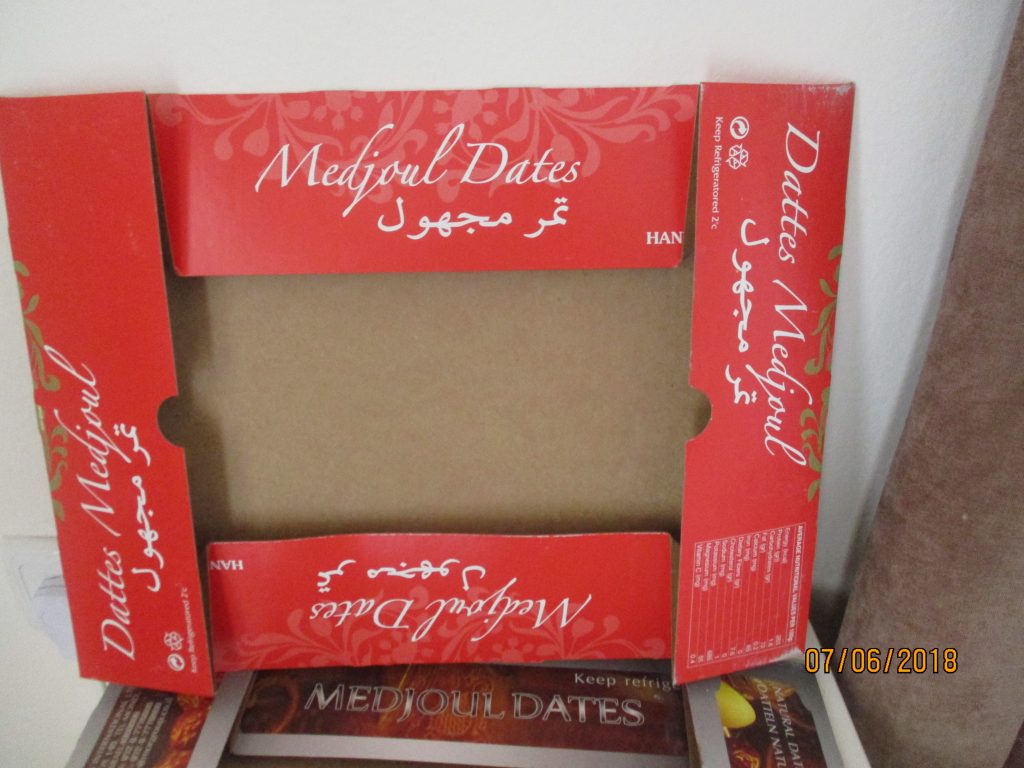
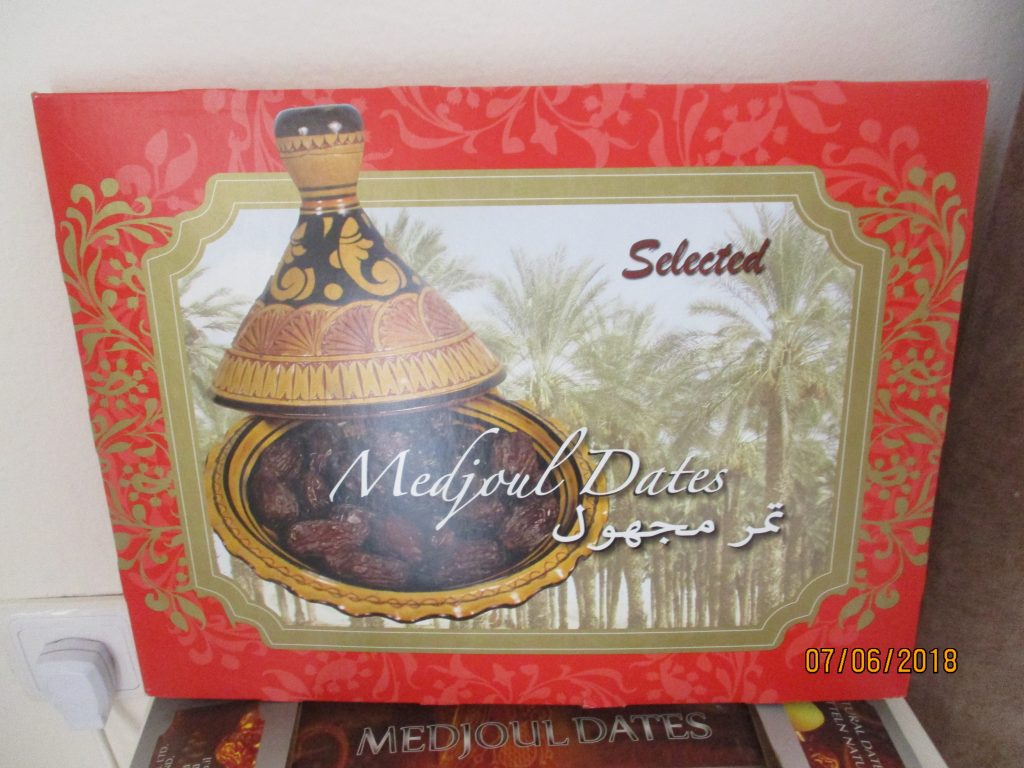
Date packaging with Arabic writing, seen in packing house in Na’ma settlement, Jordan Valley: photo by Corporate Occupation
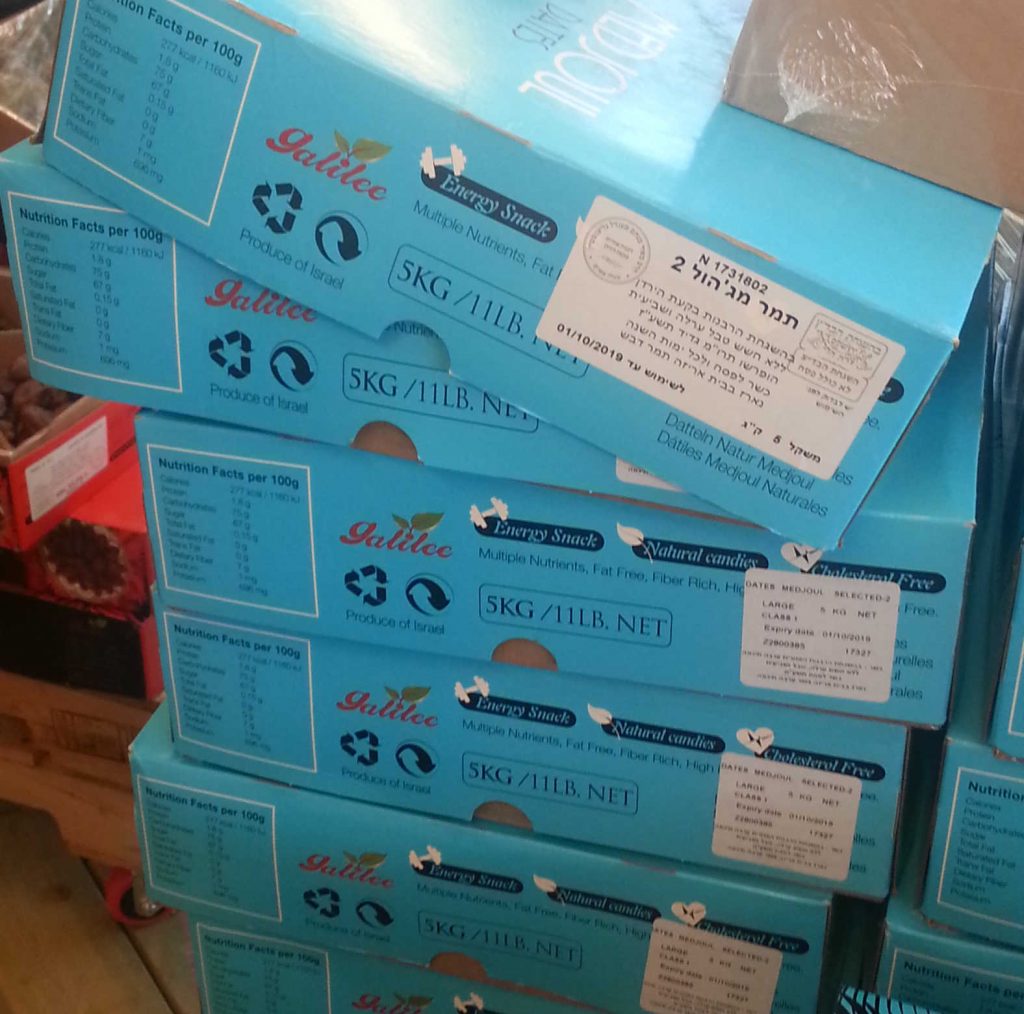
These boxes state that the dates are “Produce of Israel”
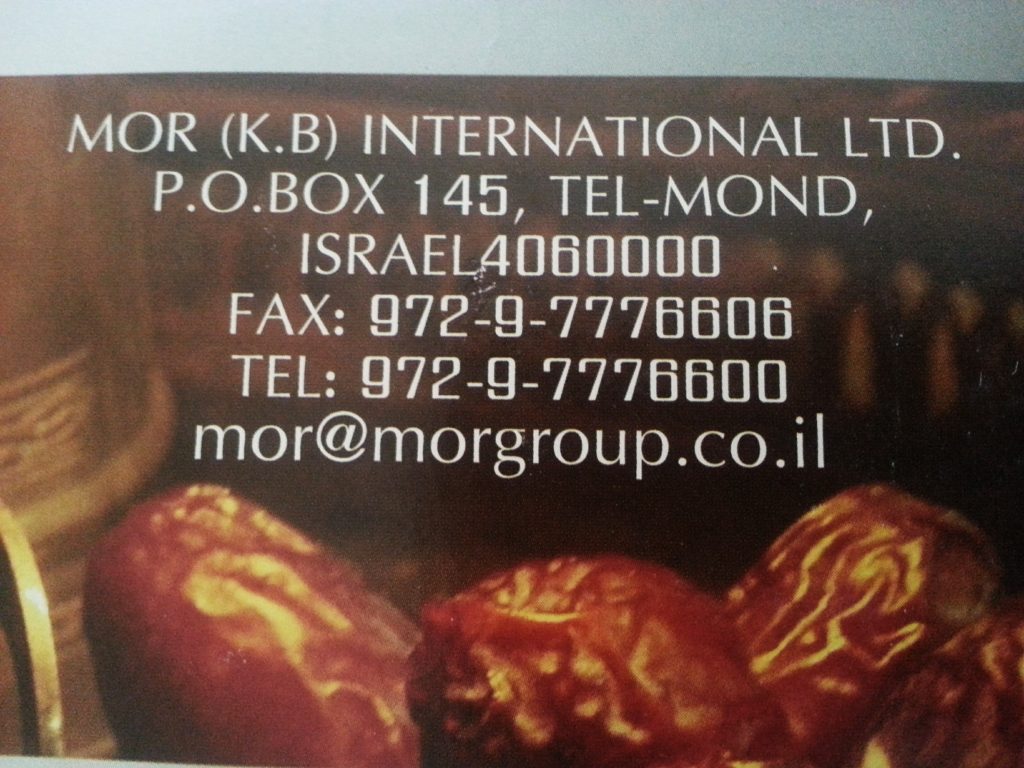
Date packaging found in Na’ama settlement, bearing a company address indicating the dates are from Israel, when they are actually from the territories occupied by Israel in 1967. The dates are marketed by MOR International, photo by Corporate Occupation
In the illegal Israeli settlement of Gilgal, which has invested millions of dollars on a wastewater irrigation system to improve its date production, a huge refrigeration unit is dedicated to the packing of dates for export through Israeli export company Mehadrin-Tnuport (MTEX).
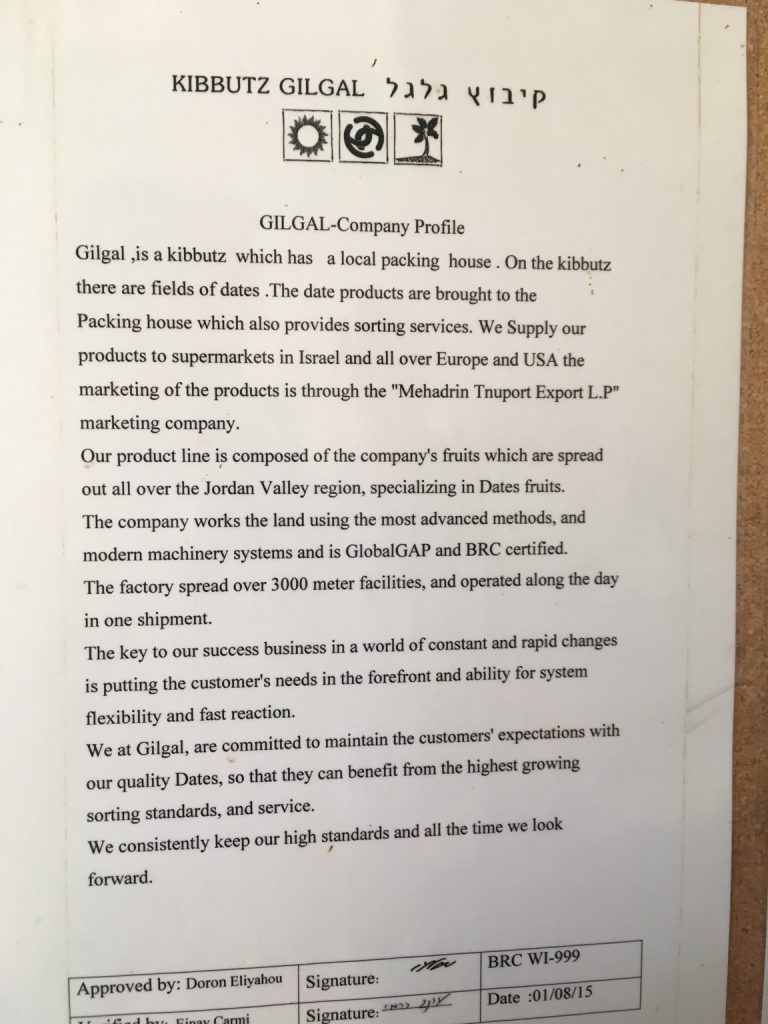
Sign in the date refrigeration unit at the settlement of Gilgal, boasting that Gilgal dates are exported to supermarkets all over Europe through Mehadrin-Tnuport (MTEX): photo by Corporate Occupation
Palestinians have called for a boycott of Israeli goods until the Israeli occupation ends, the siege of Gaza is ended and Palestinian refugees are granted the right to return home.
This article is the first of a series of articles about the Israeli settler companies profiting from date export from the Jordan Valley. Over the coming months we will be naming the companies profiting from settlement agriculture and the colonisation of Palestinian land.
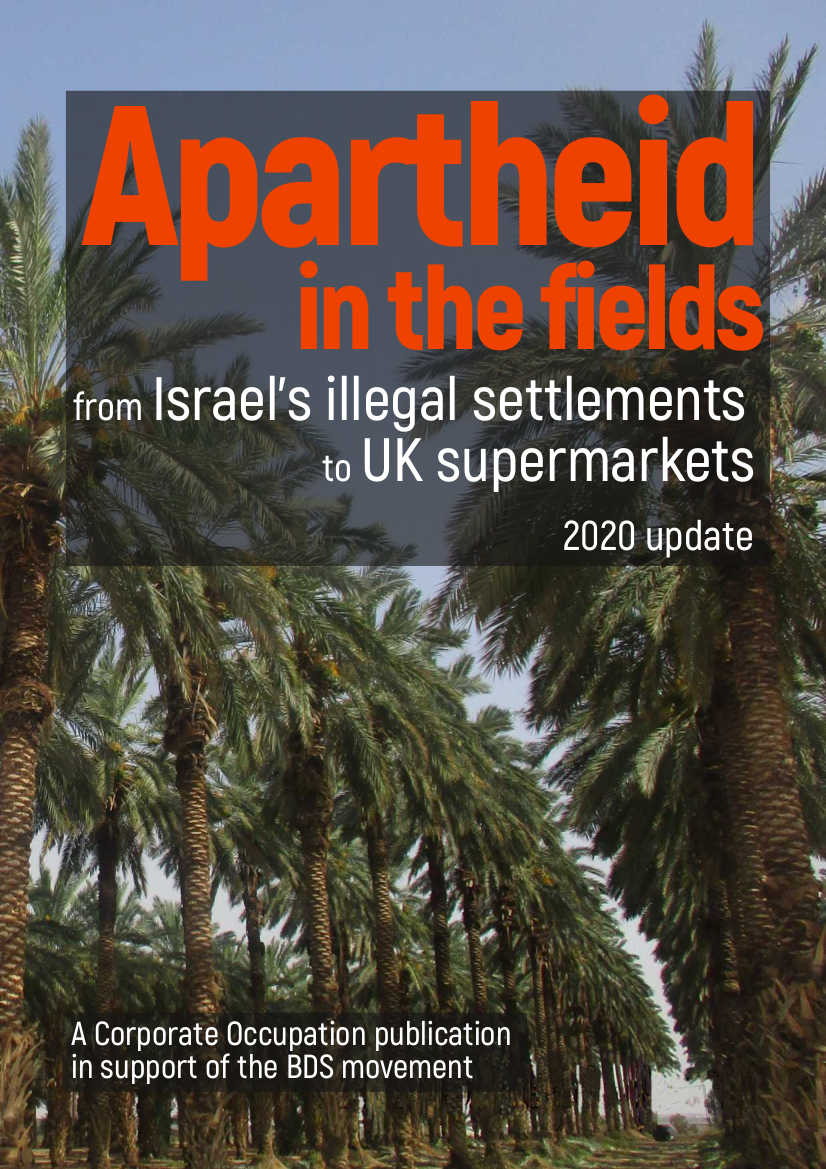
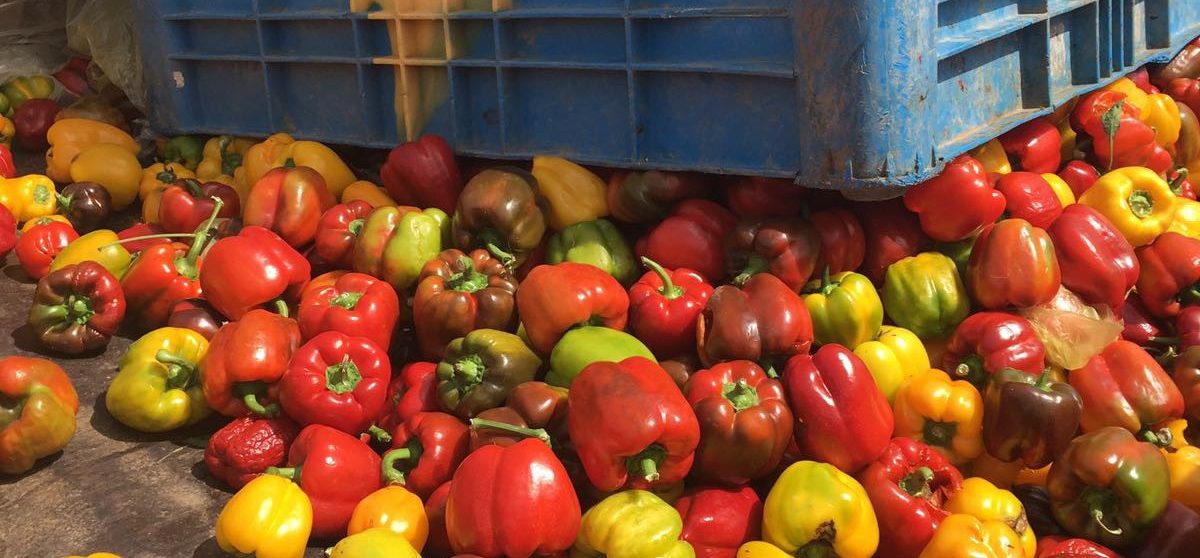

0 Comments